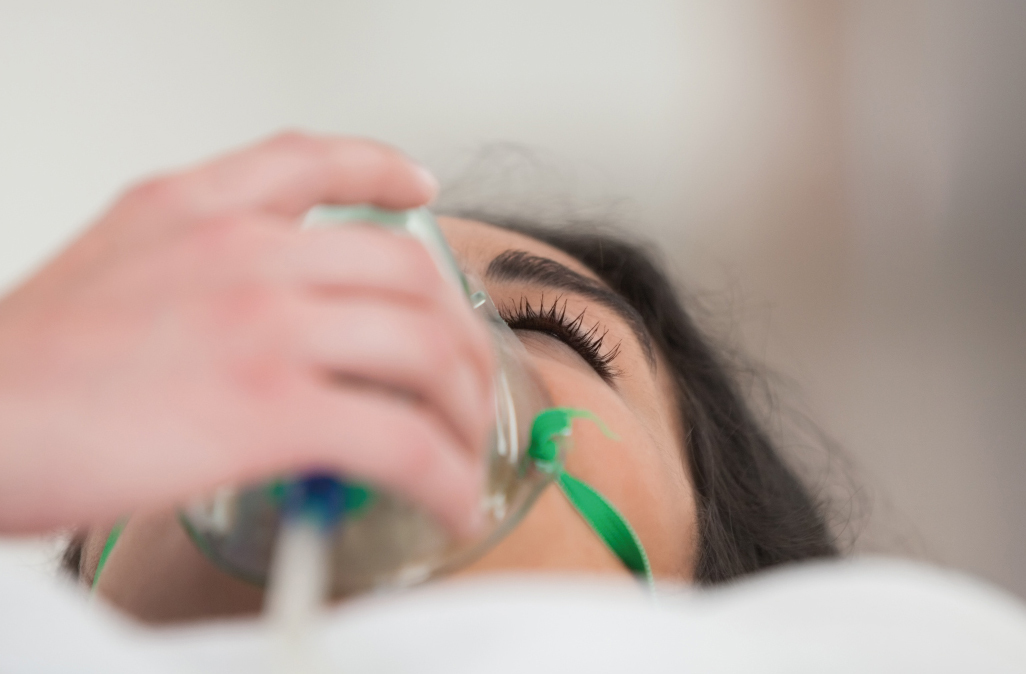How can you claim for MRSA infection negligence?

- No win. No fee.
- No hidden costs
- 100% risk-free, only pay if you win
About the Author
Gillian Gadsby
Medical Negligence Solicitor, Co-founder and Managing Partner - LLB (Hons) University of East Anglia, 1989
Read more about Gillian »When we are sent to the hospital, it is with the aim of helping us feel better. Unfortunately, even with the best medical support available, this isn’t always possible. However, on occasion, worsening health can be attributed to substandard care or treatment that a patient receives. An example of this is contracting an MRSA infection.
Although MRSA and fellow ‘superbugs’ have been known since the 19th century, they can be challenging to treat, are contagious and potentially fatal if not identified and managed correctly. This gives them the potential to lead to a surgical complication claim.
Thankfully, cases of MRSA in the UK are rare and, due to guidelines released by both the Royal College of Nursing and NICE (The National Institute for Health and Care Excellence), doctors and nurses are aware of how to treat and manage them.
Nevertheless, while incidents of negligence are uncommon, they do still occur and can cause substantial harm to patients and their loved ones. Here we will discuss MRSA in greater detail and explore the potential options for an MRSA negligence claim.
What is an MRSA infection?
MRSA (Methicillin-Resistant Staphylococcus Aureus) is a type of bacteria that can cause several harmful, hard-to-treat infections in patients. Unlike other staph infections, MRSA is trickier to treat as it has developed resistance to many types of antibiotics, making it one of the world’s most infamous ‘superbugs’ alongside the likes of Clostridium Difficile, MSSA and Klebsiella.
How do people get MRSA and other staph infections?
The MRSA bacteria live on around 1 in 30 people in the UK, usually growing in areas such as the nose, armpits, groin or buttocks in a process known as ‘colonisation’. Although it lives on the surface of the skin, it is completely harmless to these individuals.
However, if the bacteria get past the skin through an open wound, a catheter, a burn or an ulcer, it can result in severe harm to the individual and to them developing an infection.
For this reason, MRSA is a real risk in hospitals. MRSA doesn’t often infect or endanger healthy people, but instead is a greater risk for people who:
- Are in the hospital with some form of open wound or entry point for the bacteria to enter their bloodstream
- Have a weakened immune system, such as if they are unwell, are elderly, are a baby or have a condition such as diabetes
- Are surrounded by other patients and doctors who may spread the diseases by touching someone with the bacteria and passing it onto someone else’s skin
So while it is possible to catch MRSA in any environment, a hospital presents a very fertile setting for it.
What causes an MRSA infection?
How do you get MRSA in a hospital? Infections contracted in hospital can be as a result of:
- A failure to remove the presence of MRSA bacteria on a person’s skin during a stay in the hospital, which could then transmit into an open wound or another opening
- Treatments performed by infected equipment that hasn’t been disinfected or sterilised correctly
- Being touched by someone carrying the MRSA bacteria, be that a doctor, nurse, visitor or another patient
There are strict guidelines within hospitals on preventing these events, many of which could result in an MRSA negligence claim. These include:
- Covering open wounds where possible
- Disinfecting contaminated surfaces and laundry
- Following PPE and hand hygiene procedures
- Sanitising objects that have been in contact with MRSA
- Screening patients prior to overnight stays or surgical procedures
Fortunately, these are followed the vast majority of the time, including the regular washing of hands, changing PPE and general infection control.
MRSA after surgery
It is possible to contract MRSA and other staph infections after surgery. Due to this typically involving the opening of an area of the body, if there is any presence of MRSA bacteria surrounding the incision or on the equipment used during the procedure, this can lead to an infection developing.
For this reason, before surgery, doctors or nurses should perform a screening to determine if a patient is colonised with MRSA. This will typically be nothing more than a swab over the commonly colonised areas of the body to indicate if the bacteria are present.
If MRSA is discovered, steps will likely be taken to ‘decolonise’ the patient. This will usually involve the application of an antibacterial cream inside the nose, bathing with antibacterial shampoo and changing of towels, clothing and bedding every day.
Can you sue someone if you get MRSA from surgery?
If these steps aren’t taken prior to surgery and this results in an MRSA infection, a negligence claim may be available to the patient for any avoidable suffering or financial losses that occur as a result.
What are the symptoms of MRSA?
Symptoms of MRSA infection is the same as for other infections. Depending on the severity of the infection, they can include:
- Inflammation and swelling of an infected wound
- The wound feeling warmer or more painful than usual
- Development of pus
- High temperature
- Chills
- Increased heart rate and rapid breathing
- Clammy skin
- Aches and pains throughout the body
- Dizziness
- Confusion
When these symptoms are identified within the patient or the patient informs a doctor of these, they should then check your tissue or nasal secretions for presence of the bacteria.
How do you treat MRSA?
In a similar way to other staph infections, MRSA is treated with antibiotics. However, if you contract a weaker staph infection after surgery, this may be treated with less powerful antibiotics than those needed to treat an MRSA infection.
As noted, MRSA and fellow superbugs are resistant to many forms of antibiotic, so specific medication needs to be administered to treat this condition. This can last anywhere from a few days to a few weeks depending on the severity of the infection. During this time you may be kept isolated to prevent the risk of spreading the infection to others.
In addition, the infected wounds may require the patient to undergo debridement and even a skin graft. There is also the potential for the infection to develop into sepsis or septicaemia (blood poisoning), which is extremely dangerous and potentially fatal.
Under what circumstances can you claim for MRSA infection negligence?
Claims for MRSA negligence will typically fall into one of the following 2 categories:
- Negligent acquisition of MRSA
- Negligent treatment of MRSA
The COSHH (Control of Substances Hazardous to Health) Regulations 2002 state that hospitals should take responsibility for lowering exposure to harmful substances, such as MRSA bacteria. If these steps haven’t been taken and you develop MRSA as a result, this could form the basis of a claim. However, the law surrounding this can be quite hazy, and blame is often difficult to establish.
We’ve discussed circumstances where a poor standard of care can lead to an avoidable acquisition of MRSA. It is possible to make a claim for contracting MRSA, but for this type of claim to succeed, it needs to be proved that:
- The claimant contracted MRSA while in the hospital
- There was a failure in hygiene or other procedures
- The claimant wouldn’t have contracted MRSA without the identified failure in hygiene or other procedure
We have succeeded and achieved compensation in the past for patients who have been affected by this form of MRSA infection negligence. Nevertheless, determining a point of contraction and the actions (or inactions) that led to it is often very difficult even after thorough investigation.
The most common form of MRSA negligence claim will surround inappropriate or substandard treatment for the infection, leading to an unnecessary degree of injury or financial loss. Poor treatment can cover a wide range of instances, including:
- Failure to diagnose or a delayed diagnosis of MRSA
- Not acting quickly enough to treat MRSA once it was identified
- Being operated on when there was awareness you had the infection
- Not being given the correct antibiotics to treat this type of infection
- Not following relevant precautions relating to your infection
For this claim to succeed and secure compensation, a claimant must present evidence of substandard care after they had contracted MRSA, and that this negligence resulted in further harm and loss.
Claiming for MRSA negligence
We hope this breakdown of MRSA infections and the various circumstances that can lead to a claim has been helpful. MRSA and staph infection negligence can have serious consequences not only for a patient and their loved ones, but anyone else who comes into contact with them during their stay in hospital.
Whether you have reason to believe that you contracted an infection as a result of substandard care while in the hospital, or that your subsequent treatment for the illness was unacceptably negligent, we are there to support any form of MRSA claim.
With the support of our firm’s medical experts and the evidence you provide, we’ll dedicate the time and resources necessary to investigate what happened and if more could have been done by your healthcare providers in these circumstances. Once this is determined, we’ll guide you through the claims process with the aim of securing the best possible outcome for you.
Furthermore, we work on a ‘No Win, No Fee’ basis to give you peace of mind over your financial situation during proceedings. For more information about how we can support your case, get in touch with our team today.
Disclaimer
All content contained within this article is meant for general information only – this should not be treated as a substitute for medical advice from your doctor or another healthcare provider. If you require legal advice specific to your situation, please contact our team directly.
Gadsby Wicks is not liable for any diagnosis made from the content of this article, nor does it endorse any service or external site linked to within the article.
Always consult your GP if you are concerned about your health and wellbeing, or speak to us if you require legal advice.



